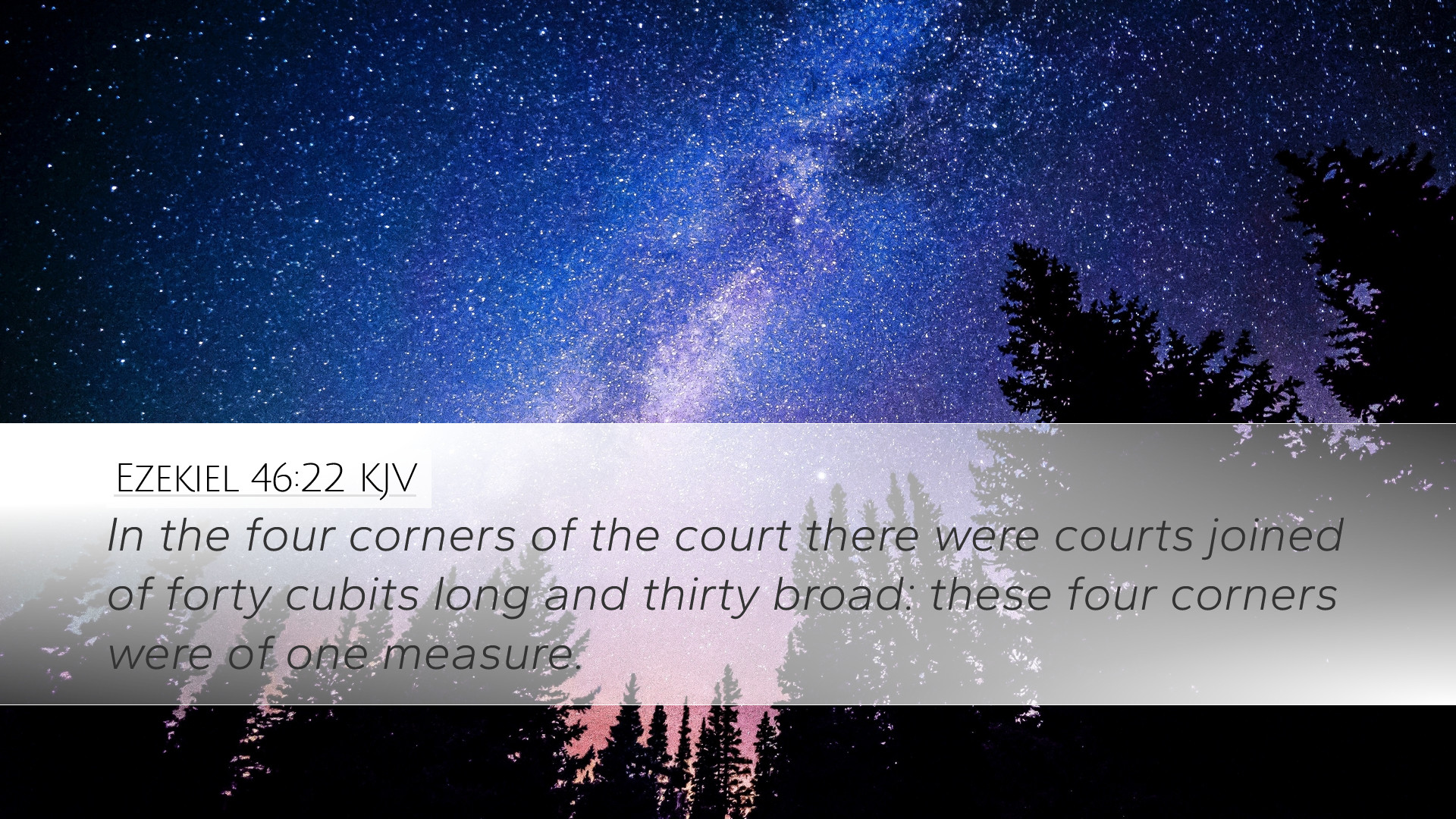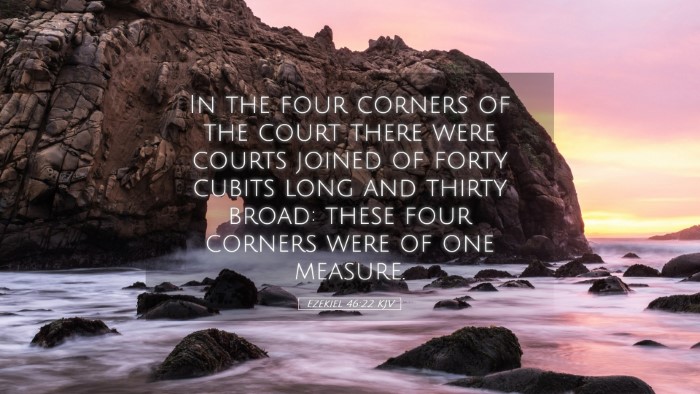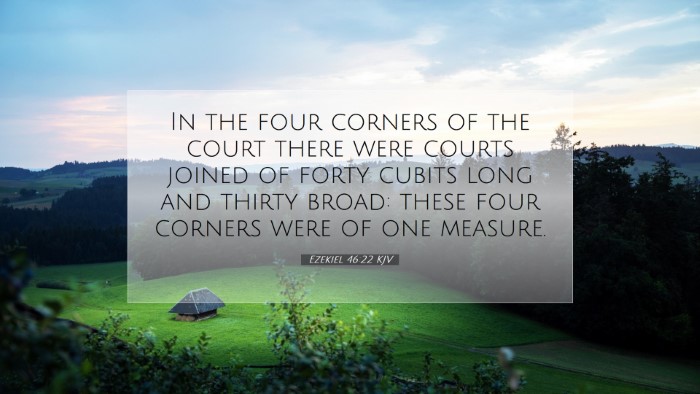Ezekiel 46:22 Commentary
Bible Verse: "In the four corners of the court were special rooms, and in the corners of the court were rooms of the court." (Ezekiel 46:22)
Overview
This verse, part of the prophetic vision delivered to Ezekiel, provides insight into the layout of the Temple complex that was to be established in Jerusalem. The significance of the four corners of the court and the rooms therein serves not just a practical purpose but also a theological one, underscoring God’s presence, ministry, and the orderliness of divine worship.
Insights from Commentaries
Matthew Henry's Commentary
Matthew Henry elucidates the significance of the design of the Temple's court, emphasizing the importance of structure in worship. He notes that the corners of the court symbolize the comprehensive reach of God’s grace; the use of corners in built structures highlights God's acknowledgment of all parts of life. These special rooms may signify places of refreshment and preparation for the priests as they engage in worship activities, thus reiterating the need for purity and focus amid ministry.
Practical Implications
- Order in Worship: Henry points out that just as the physical infrastructure of the Temple includes designated areas, so should worship be conducted with order and reverence, reflecting the holiness of God.
- Preparation for Service: The designated rooms suggest a space for priests to prepare spiritually and physically, emphasizing the need for preparation before entering the holy space.
Albert Barnes' Notes on the Bible
Albert Barnes focuses on the structural and geographical aspects of the Temple, suggesting that the four corners represent completeness. Each corner functionally provided space not only for the rituals but also for the leaders and clergy tasked with overseeing worship. Barnes also suggests that the corners indicate accessibility for all, extending the notion of God's presence to all areas of the community.
Theological Reflections
- Completeness of God’s Presence: The four corners suggest that God's presence permeates every aspect of our lives, echoing the omnipresence of the divine.
- Inclusiveness of Worship: By designating corners as places for ministry, Barnes highlights an inclusive approach to worship, where different ministries have distinct but interconnected roles.
Adam Clarke's Commentary
Adam Clarke delves into the symbolism of the Temple's design, explicating that the corners of the court may represent the four directions of the earth. This connection suggests a universal aspect of God’s worship and the call to all nations to join in reverence. Clarke argues that these special rooms were integral for the spiritual activities of the priests, reinforcing the priestly responsibilities inherent in worship.
Symbolic Meanings
- Universal Worship: Clarke’s interpretation asserts that God’s presence is not confined to one location; it extends to all corners of the earth, inviting all to worship.
- Priestly Responsibility: The provision of rooms indicates the necessity of dedicated space for those who mediate on behalf of the people, highlighting the significance of the priesthood in representing the community before God.
Concluding Thoughts
The examination of Ezekiel 46:22 through the lenses of these respected commentaries illustrates the depth of meaning within this brief passage. Whether it be the practical need for orderly worship, the theological implications of divine presence, or the symbol of inclusivity, each commentary enriches the understanding of the text.
For pastors, students, and theologians, reflecting on these insights can enhance the appreciation of worship architecture as a sacred space designed for both God's glory and the community's benefit. The lessons drawn from this verse are timeless, reminding contemporary believers of the need for reverence, preparation, and an understanding of God's encompassing presence in our worship practices.


